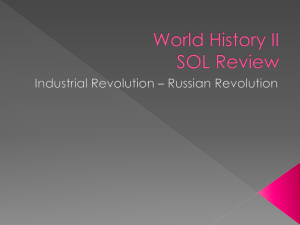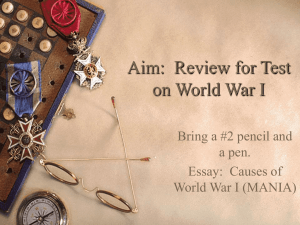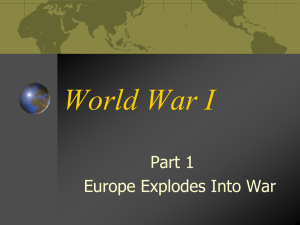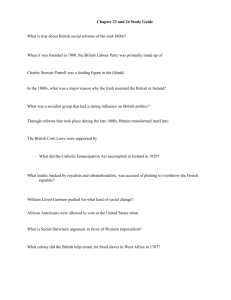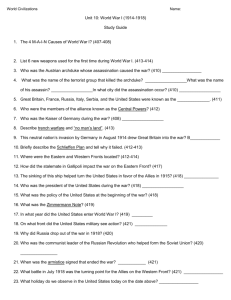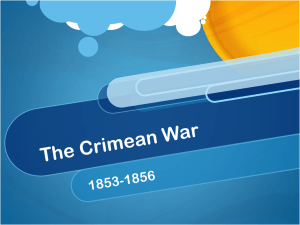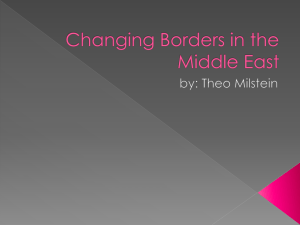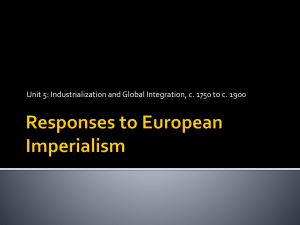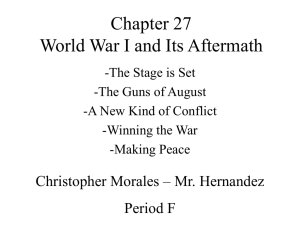SOL Review 5
advertisement
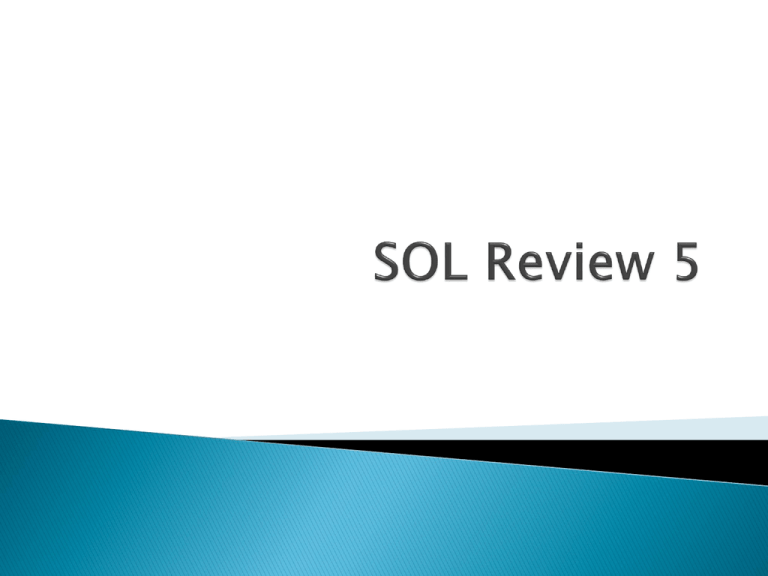
Definition- the domination by one country of the political, cultural, or economic life of another country. Colonies- most expensive + most control (ex. India was a colony of Great Britain> Protectorates- leave local rulers in place but tell them what to do ( ex. Egypt was a protectorate of Great Britain) Spheres of Influence- an area in which an outside power claimed exclusive investment or trading privileges + least restrictive (ex. China) Other ideas: ◦ America opened trade with Japan ◦ MissionariesChristianize the people of Africa and Asia ◦ Suez Canal-shortcut between Europe and Asia ◦ Industrial Revolutioncreated a new need for markets and raw materials ◦ Armed Conflicts- Boxer Rebellion + Opium War Imperialism- competition for the colonies Militarism-European countries competed with one another to see which one could have the best army and navy Alliances- Central Powers (Austria-Hungary, Germany, Bulgaria, and Ottoman Empire) vs. Allies (France, Britain, and Russia) Nationalism- people of the same ethnic background want a homeland Assassination of Archduke Ferdinand-spark to start the war Assassination of Archduke Ferdinand- spark that started the war U.S. enters the war (1917)- unrestricted submarine warfare and Zimmerman note Russia exits the war (1917)- Russian Revolution Woodrow Wilson- President of the U.S. (Fourteen Points/League of Nations) Kaiser Wilhelm II- leader of Germany Colonies participated in the war- Increased demands for independence (ex. India wanted independence from Great Britain) End of Russian, Ottoman, German, and Austro-Hungarian Empires Lots of destruction, lives lost, and social disruption Treaty of Versailles- forced Germany to accept guilt for war and loss of territory+ pay reparations+ limited German military Peacekeeping organization established to prevent future wars Failed organization- could not enforce its decisions U.S. never joined League of Nations (isolated)- did not sign Treaty of Versailles France and Great Britain became mandatory powers in the Middle East Divided Ottoman Empire into new countries (Lebanon, Syria, Iraq, and Palestine) British controlled Iraq, Palestine, and Transjordan and France controlled Syria and Lebanon Defeat in war with Japan in 1905 Landless peasantry Incompetence of Tsar Nicholas II (absolute monarchy) Losing in World War I Led Russian Revolution New Economic Policy- goal (improve Russia’s economy) – socialism (meant to be temporary) Five Year Plan- make Soviet Union a modern industrial power- command economy, production improved while standard of living remained poor Collectivization of Farms- no more private ownership-government farms or collectives (work as a group)- did not improve farm output (grain production grew slightly while meat, vegetables, and fruits remained in short supply) Secret Police+ Great Purge ( destroy enemies)
